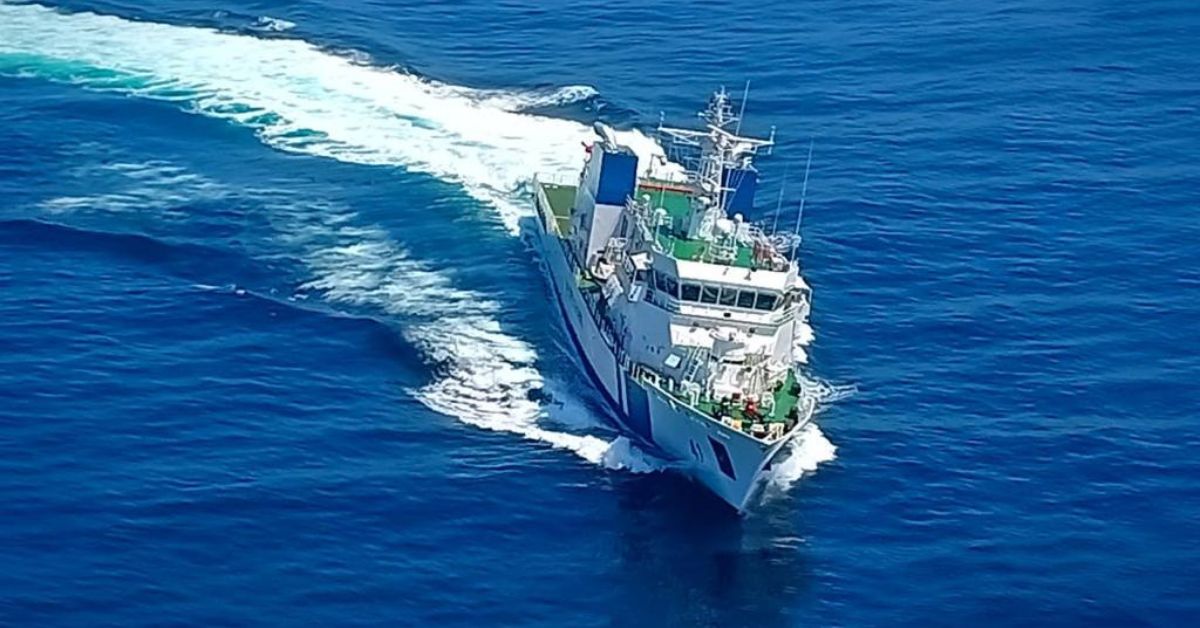India has bolstered its coastal security architecture through several proactive initiatives undertaken by the Indian Coast Guard (ICG). On a daily basis, the ICG deploys 18–20 ships, 30–35 crafts, and 10–12 aircraft to ensure robust surveillance, focusing not only on the mainland coast but also on the Offshore Development Areas (ODAs) and surrounding seas near the Andaman & Nicobar and Lakshadweep islands. Surveillance operations are reinforced through the Coastal Surveillance Network (CSN), along with monitoring via Remote Operating Stations (ROS) and Remote Operating Centres (ROCs).
Over the past decade, the ICG has carried out an impressive 3,00,296 boarding operations to deter unlawful activities and establish identity verification at sea. Additionally, it has conducted 153 Coastal Security Exercises, 451 Coastal Security Operations, 458 Security Drills, and 3,645 Joint Coastal Patrol Sorties. These efforts have resulted in the seizure of 179 boats and arrest of 1,683 individuals involved in illegal activities such as poaching, smuggling of narcotics, and unauthorised immigration.
To support these operations, significant investments have been made, with Rs 122.01 billion utilised for the acquisition of ships and aircraft for coastal security across India, and Rs 15.83 billionspent on the CSN infrastructure.
Furthermore, Standard Operating Procedures (SOPs) have been issued for all Coastal States and Union Territories, clearly outlining the responsibilities of various stakeholders, protocols for operations, and coordinated response management strategies. The ICG also places strong emphasis on community engagement, regularly conducting Community Interaction Programmes with fisherfolk to raise awareness about maritime safety and security. These programmes are complemented by the establishment of Fishermen Watch Groups, created by respective States to report any suspicious coastal activity.
A toll-free helpline (1554) has been set up for the public to report emergencies or suspicious incidents at sea. Simultaneously, both ICG personnel and Marine Police are provided with targeted training to enhance their capabilities in ensuring coastal safety and executing their assigned duties efficiently.
This detailed update on India’s coastal security preparedness was shared by Raksha Rajya Mantri Shri Sanjay Seth in a written reply to Shri Krishna Prasad Tenneti in the Lok Sabha.
India has significantly bolstered its coastal security architecture through several proactive initiatives undertaken by the Indian Coast Guard (ICG). On a daily basis, the ICG deploys 18–20 ships, 30–35 crafts, and 10–12 aircraft to ensure robust surveillance, focusing not only on the mainland coast but also on the Offshore Development Areas (ODAs) and surrounding seas near the Andaman & Nicobar and Lakshadweep islands. Surveillance operations are reinforced through the Coastal Surveillance Network (CSN), along with monitoring via Remote Operating Stations (ROS) and Remote Operating Centres (ROCs).
Over the past decade, the ICG has carried out an impressive 3,00,296 boarding operations to deter unlawful activities and establish identity verification at sea. Additionally, it has conducted 153 Coastal Security Exercises, 451 Coastal Security Operations, 458 Security Drills, and 3,645 Joint Coastal Patrol Sorties. These efforts have resulted in the seizure of 179 boats and arrest of 1,683 individuals involved in illegal activities such as poaching, smuggling of narcotics, and unauthorised immigration.
To support these operations, significant investments have been made, with Rs 122.01 billion utilised for the acquisition of ships and aircraft for coastal security across India, and Rs 15.83 billionspent on the CSN infrastructure.
Furthermore, Standard Operating Procedures (SOPs) have been issued for all Coastal States and Union Territories, clearly outlining the responsibilities of various stakeholders, protocols for operations, and coordinated response management strategies. The ICG also places strong emphasis on community engagement, regularly conducting Community Interaction Programmes with fisherfolk to raise awareness about maritime safety and security. These programmes are complemented by the establishment of Fishermen Watch Groups, created by respective States to report any suspicious coastal activity.
A toll-free helpline (1554) has been set up for the public to report emergencies or suspicious incidents at sea. Simultaneously, both ICG personnel and Marine Police are provided with targeted training to enhance their capabilities in ensuring coastal safety and executing their assigned duties efficiently.
This detailed update on India’s coastal security preparedness was shared by Raksha Rajya Mantri Shri Sanjay Seth in a written reply to Shri Krishna Prasad Tenneti in the Lok Sabha.







